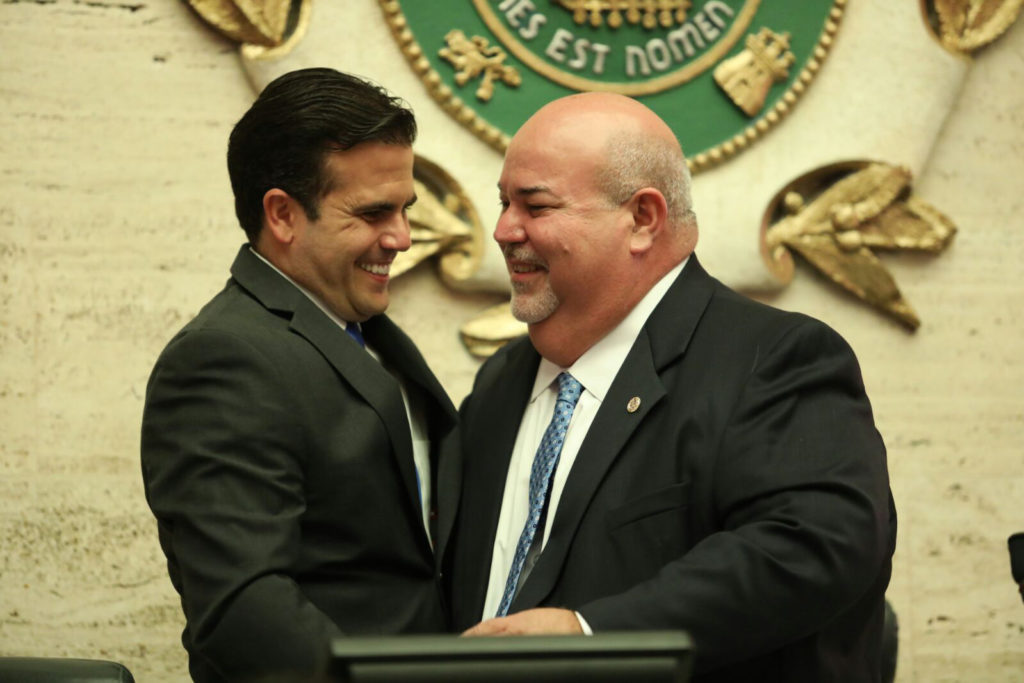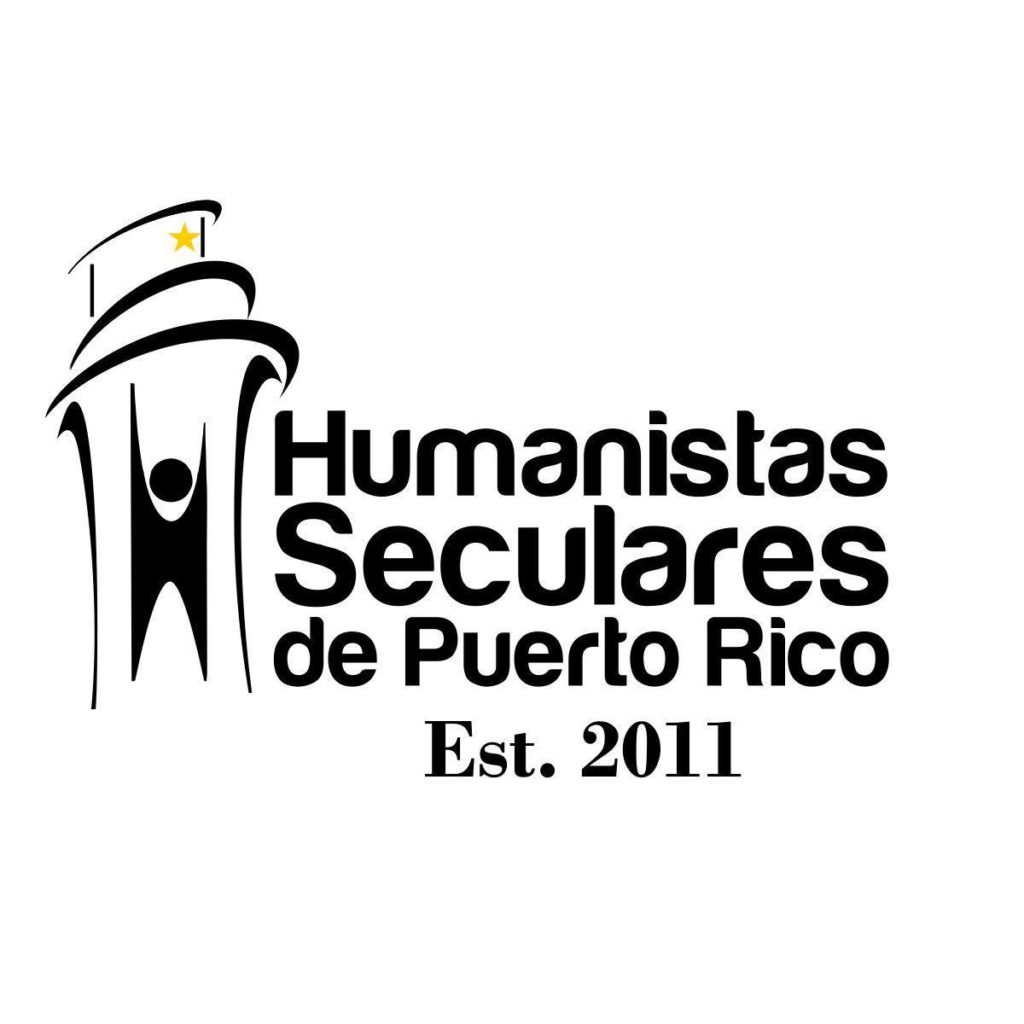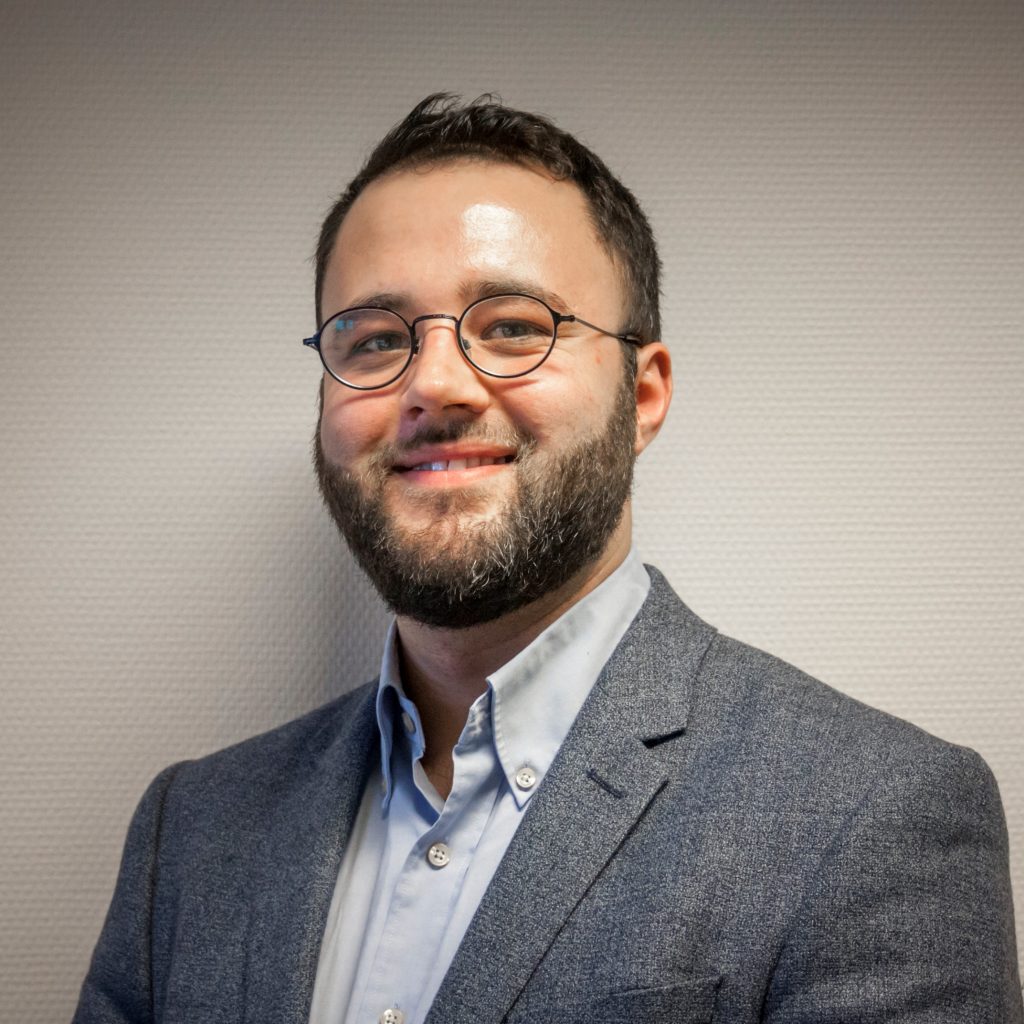Puerto Rico has decided to fight a long-term economic recession with “fasting and prayer”. It hasn’t worked. And now humanists bringing a constitutional case against the official 40-day decree have been rebuffed by the United States Federal Court.
For more than 10 years Puerto Rico has been struggling through a long and seemingly unstoppable recession, with a rising public debt of nearly $70 billion. To fight the crisis, Puerto Rico’s governor, Ricardo Rosselló, announced last month a dramatic austerity plan with some severe measures like closing down 75% of public agencies and increasing the cost of public services for their users.
The 40-day decree
Nonetheless, Carlos “Johnny” Méndez, President of Puerto Rico’s House of Representatives, thought that austerity was not enough and thus decreed “40 days of fervent fasting and prayer for the spiritual, material, and social purification of our people all over the Puerto Rico archipelago”. This decree was signed by a large majority of the representatives of Méndez’s governing party, and passed 16 February, proclaiming “40 days of fasting and prayer”, one for each of the 40 districts of Puerto Rico, from 27 February to 7 April 2017. The public were encouraged to meet in churches and to pray, accompanied by Méndez and other representatives, mayors and politicians. On the final day the decree invites everyone “to gather together in humiliation and unity before the Lord to plead and call upon a united people in peace”.
Méndez: “I believe in divine intervention”

On the left, Puerto Rico’s governor, Ricardo Rosselló, toegether with Carlos “Johnny” Méndez, the promoter of the 40-day decree
Méndez, who affirmed “to believe in divine intervention” and to not perceive this decree “as an imposition”, sent a letter to the representatives offices to convince them to sign the decree. He quoted the books of Esther and Joel as biblical “good example” in favour of the fasting period. Asked by reporters on the constitutionality of the decree, he replied: “As far as I know, the shield of Puerto Rico has the lamb that represents Jesus Christ on a Bible. That is our faith”.
In fact, Puerto Rico’s constitution unequivocally states (Article II, Section 3): “No law shall be made respecting an establishment of religion or prohibiting the free exercise thereof. There shall be complete separation of church and state.”
The trial
Appealing to the constitution, the Secular Humanists of Puerto Rico (HuSe) challenged the decree, requesting that the Tribunal de Primera Instancia (TPI) declares it unconstitutional. With the legal support of ACLU (the American Civil Liberties Union) and a letter of support from IHEU (the International Humanist and Ethical Union), HuSe then filed a detailed opposition to the Superior Court of San Juan, last 6 March. One month later, the same day the fastings ended, the Court dismissed HuSe’s claim “for lack of standing”. They found that Méndez’s decree did not create any “injury-in-fact”. The Court then ordered the case to be returned to the TPI. HuSe will likely continue with the case.
The godless are “worthless”
Celebrating both the Court’s decision and the end of the 40 days, Méndez said: “critics do not matter, nothing really matters, because one must always put God first”. Some days before, during a speech in a church, he also said that “if someone does not have God in his heart, he is worthless”.
Humanists respond

HuSe’s logo
Eva Quiñones, president of HuSe, released the following statement:
“The manner in which the judge decided to dismiss our lawsuit without looking at the merits of the case sends a clear message to our elected leaders, that is: you are allowed to use religion to promote your own agendas rather than the citizens one. This is a real threat to all the social and legal advances achieved in the past 10 years in the fields of equality, reproductive rights, LGBT rights, and others. This also violates our freedom of religion, that includes also the freedom to not believe in any religion. In Puerto Rico, in fact, if you do not support the official state-sponsored religion the value of your citizenship is reduced, so that you have to either lie about your religious beliefs or claim to have beliefs when you do not have any. Following the Constitution, HuSe stands for the complete separation of church and state, because the bible may be for some people, but the Constitution is for all.”

Gary McLelland, IHEU Chief Executive
Commenting on the Court’s decision, IHEU Chief Executive Gary McLelland said:
“There is always injury when states disregard constitutional clauses designed to ensure inclusivity, state neutrality, and to uphold freedom of belief for all. Puerto Rico is a secular state. The government has no legitimate business in propping up and promoting a particular religion. This is just a convenient political tool, and a populist distraction from hard economic realities which will do nothing to solve the underlying problems.”
“Dios siempre primero”: Puerto Rico celebró 40 dias de ayuno y oración para “combatir la crisis”
Puerto Rico ha decidido combatir el problema de su recesión con “ayuno y oración”. No ha funcionado. Los humanistas han decidido reclamar por las violaciones constitucionales causados por el decreto de 40 días, pero un tribunal federal les ha desestimado la demanda.
Por mas de 10 años, Puerto Rico ha estado sufriendo una recesión indetenible. Para combatir esa crisis, en gobernador de Puerto Rico, Ricardo Rosselló anunció el mes pasado un dramático plan de austeridad con algunas medidas tan severas como cerrar el 75% de las agencias públicas y el aumento en los costos de servicios públicos para los usuarios.
El decreto de 40 días
Sin embargo, Carlos “Johnny” Méndez, Presidente de la Cámara de Representantes de Puerto Rico, pensó que la austeridad no era suficiente y decretó “40 días de ayuno ferviente para la purificación espiritual, material, y social de nuestra población en todo el archipiélago de Puerto Rico”. Este decreto fue firmado por una gran mayoría de los representantes de su partido mayoritario, y fué autorizado el 16 de febrero decretando “40 Días de Ayuno y Oración”, un día por cada distrito representativo en Puerto Rico, desde el 27 de febrero al 7 de abril del 2017. Se llamaba a que el público asistiera a unas iglesias para orar (upload facsimile), acompañados por Méndez y otros representantes, alcaldes y políticos. En el último día, el decreto invita a los participantes a unirse en “humillación y unidad final ante el Señor para suplicar y clamar en paz”.
Méndez: “creo en la intervención divina”

A la izquierda, el gobernador de Puerto Rico, Ricardo Rosselló, con Carlos “Johnny” Méndez, primero sostenedor del decreto de 40 días
Méndez, quien afirmó creer en la intervención divina y que no percibe este decreto como “una imposición”, envió una letra a las oficinas de los representantes para convencerlos de firmar el decreto. Citó el libro de Ester y de Joel como “buenos ejemplos” a favor de un período de ayuno. Cuando los reporteros le preguntaron sobre la constitucionalidad del decreto, respondió: “Hasta donde yo sé, el escudo de Puerto Rico tiene el cordero que representa a Jesucristo sobre una Biblia. Esa es nuestra fe”.
De hecho, la Constitución de Puerto Rico dice inequívocamente en su Artículo II (Sección 3) sobre la Libertad de culto: “No se aprobará ley alguna relativa al establecimiento de cualquier religión ni se prohibirá el libre ejercicio del culto religioso. Habrá completa separación de la iglesia y el estado.”
El proceso
Apelando a la constitución, los Humanistas Seculares de Puerto Rico retaron el decreto, solicitándole al Tribunal de Primera Instancia (TPI) que declarara inconstitucional el decreto mediante demanda presentada el 22 de febrero. El 6 de marzo, representados por abogados de la American Civil Liberties Union (ACLU) y con una una carta de apoyo de la International Humanist and Ethical Union (IHEU), HuSe sometió una denuncia detallada ante el Tribunal Superior de San Juan. Un mes después, el mismo día que terminaron los ayunos, el tribunal desestimó la demanda por falta de legitimación activa. Decidió que el decreto de Méndez no creó un “daño real”. Ordenó también devolver el caso al TPI. Es muy probable que HuSe continúe allí el caso.
Sin Dios no vale nada
Celebrando la decision del tribunal, y el final de los 40 días, Méndez dijo: “No importan las críticas, no importa nada, hay que poner a Dios siempre primero”. Unos días antes, durante un discurso en una iglesia, también dijo que “si no tienes a dios en tu corazón, no vales nada”.
La respuesta de los humanistas

El logo de la HuSe
Eva Quiñones, presidenta of HuSe, divulgó la siguiente declaración:
“La forma en la que el juez decidió desestimar nuestra demanda sin ver los méritos del caso envía un mensaje claro a nuestros líderes electos: es permitido de usar la religión para promover vuestras agendas. Esto es una amenaza a todos los avances sociales y jurídicos logrados en los últimos 10 años en los campos de la igualdad, los derechos reproductivos, los derechos LGBT y otros. Esto además viola también nuestra libertad de culto, que incluye la libertad de no creer en religión alguna. En Puerto Rico, de hecho, tienes que mentir en cuanto a tus creencias religiosas o decir que tienes creencias cuando no las tienes. Siguiendo la Constitución, HuSe defiende la completa separación de la iglesia y el estado, porque la biblia puede ser para algunos, pero la Constitución es para todos.”

Gary McLelland, Director Ejecutivo de la IHEU
Comentando acerca de la decisión del Tribunal, Gary McLelland, Director Ejecutivo de la IHEU dijo:
“Siempre hay un daño cuando los estados desprecian cláusulas constitucionales diseñadas para asegurar la inclusividad, la neutralidad de parte del estado y para sostener la libertad de culto para todos. Puerto Rico es un estado laico. El gobierno no puede estar en el negocio de levantar ni promover una religión en particular. Esto es solo una herramienta política conveniente y una distracción populista de las duras realidades económicas que no va a hacer nada para solucionar los problemas subyacentes.”
